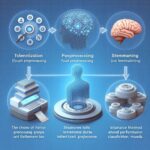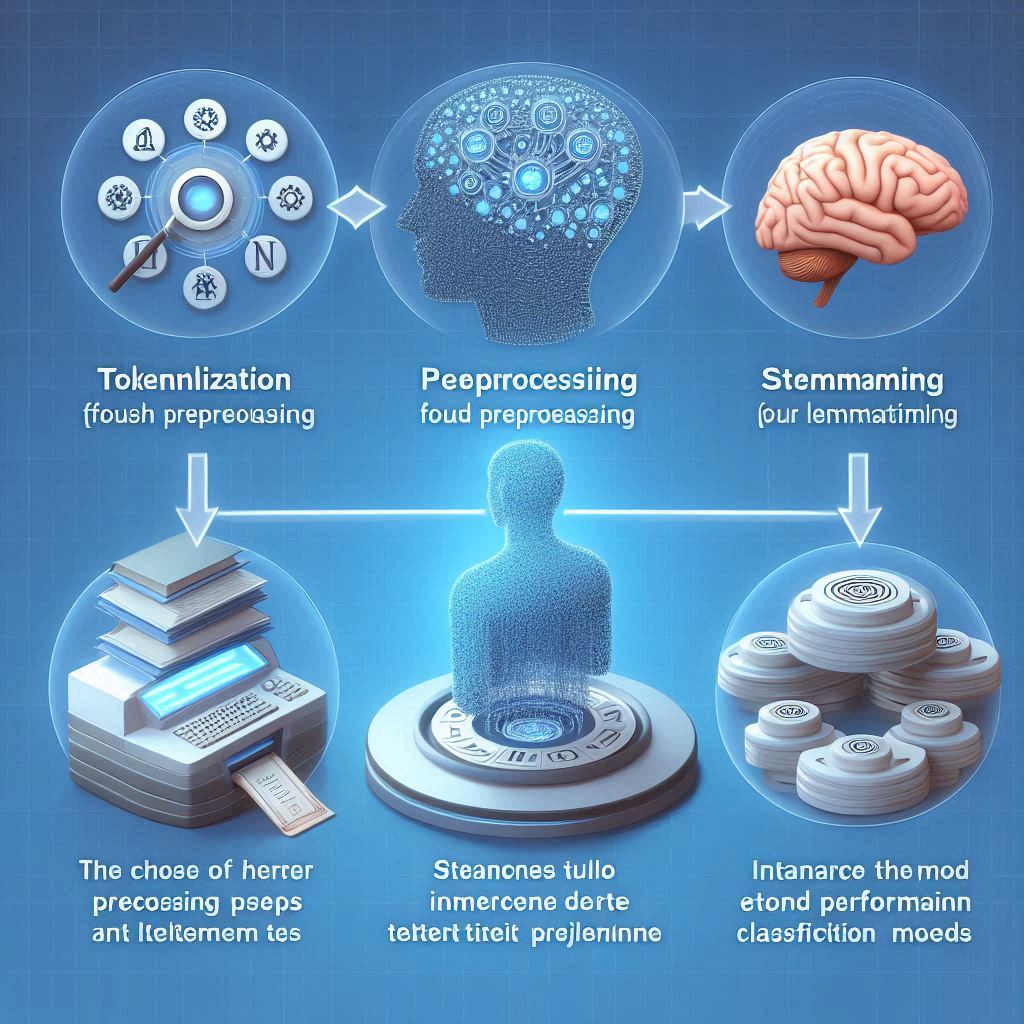AI and Natural Language Processing
The advent of artificial intelligence (AI) has revolutionized the way we interact with technology, paving the way for groundbreaking advancements in a myriad of sectors. One of its most compelling aspects is Natural Language Processing (NLP), a subset of AI that facilitates human-computer interaction by allowing machines to understand and respond to human language. NLP has been a gamechanger, influencing sectors from customer support to healthcare, and it’s poised to revolutionize another critical area: data analysis.
Data is the lifeblood of today’s digital economy. Businesses globally are leveraging data to make informed decisions, predict trends, improve customer experience, and boost their bottom line. However, amid this data deluge, extracting meaningful insights can be a daunting task. This is where AI and NLP come into play, with promising tools like ChatGPT offering powerful data analysis capabilities.
A quick dive into ChatGPT
ChatGPT, developed by OpenAI, is a state-of-the-art language model powered by GPT-3 (Generative Pretrained Transformer 3). It uses machine learning to generate human-like text based on the input it receives. This technology has the potential to simplify data analysis by interpreting complex data sets and producing understandable summaries and insights.
Data Analysis: The backbone of decision making
Data analysis is the process of inspecting, cleansing, transforming, and modeling data to discover useful information, derive conclusions, and support decision-making. It is a critical aspect of modern businesses that helps organizations understand their performance, customers, and market trends while also identifying opportunities and threats.
In this data-driven world, organizations are often flooded with a vast amount of data from various sources. Traditional data analysis methods can be time-consuming and error-prone, making it difficult for businesses to make timely decisions. This is where AI-powered data analysis tools step in, offering a more efficient and accurate approach to managing and interpreting data.
Revolutionizing Data Analysis with AI: The role of ChatGPT
ChatGPT can play a significant role in data analysis by providing smart and automated insights. By leveraging its NLP capabilities, ChatGPT can interpret complex data sets and generate detailed summaries or recommendations. This can drastically reduce the time required for manual data analysis and can lead to more accurate insights.
For instance, imagine a dataset containing thousands of customer reviews. Analyzing such a massive dataset manually can be a daunting task. However, with ChatGPT, businesses can quickly analyze the data and generate a comprehensive report highlighting key points, sentiments, trends, and suggestions for improvements.
Advantages of Utilizing ChatGPT in Data Analysis
One of the primary benefits of using ChatGPT in data analysis is automation. Rather than spending days or even weeks analyzing data and preparing reports, businesses can harness the power of ChatGPT to gain insights in a fraction of the time.
Furthermore, the AI model’s ability to understand nuances in human language allows for more accurate sentiment analysis in data such as customer reviews or feedback. This can lead to more targeted strategies and improved customer experiences.
ChatGPT’s ability to handle big data effectively is another significant benefit. The more data you feed into the model, the more accurate and useful its outputs become. This is especially advantageous for businesses dealing with vast amounts of data, where manual analysis would be unfeasible.
Illustrating Success: Real-world Applications of ChatGPT in Data Analysis
ChatGPT is not just a theoretical concept; it has found real-world applications across different sectors. For instance, in healthcare, it can analyze patient records to provide healthcare professionals with insights about patient health trends, risk factors, and potential treatment options.
In the financial sector, ChatGPT can interpret and summarize complex financial reports, making them accessible to non-specialist audiences. It can also help identify trends and patterns in financial data that can guide investment decisions.
Identifying Limitations and Challenges in the Adoption of ChatGPT
Despite its immense potential, ChatGPT comes with its own set of challenges. One of the primary concerns is data privacy. As ChatGPT analyzes data, it may encounter sensitive information. Ensuring that this data remains confidential and is used responsibly is crucial.
Another challenge is the risk of misinterpretation. While ChatGPT can understand and generate human-like text, it may occasionally misinterpret certain nuances, leading to inaccuracies in the analysis.
Addressing the Challenges: Steps to Overcome Limitations
Overcoming these challenges requires a multifaceted approach. For data privacy concerns, businesses can adopt stringent data security measures, anonymize sensitive data, and ensure compliance with data protection regulations.
To mitigate the risk of misinterpretation, constant monitoring and iteration of the AI model is necessary. Businesses can also integrate ChatGPT with other advanced AI tools to improve accuracy and contextual understanding.
Gazing into the Future: AI’s role in Data Analysis
The future of data analysis lies in AI. As technology continues to advance, we can expect AI models like ChatGPT to become more sophisticated and accurate, making data analysis even more seamless and efficient.
AI has the potential to democratize data analysis, making it accessible to a wider audience, regardless of their technical expertise. With tools like ChatGPT, anyone can analyze data and derive valuable insights, which can lead to more informed decision-making across all sectors.
Balancing Expectations: Realistic Outlook of ChatGPT in the Future
While the potential of AI in data analysis is immense, it is essential to maintain a balanced perspective. AI tools like ChatGPT are powerful, but they are tools nonetheless. They should be seen as aids to human decision-making, not replacements for human insight and expertise.
Thoughts on Ethical Considerations in Using AI for Data Analysis
As with any powerful technology, ethical considerations must be at the forefront when using AI for data analysis. Businesses must ensure they use AI responsibly, protecting data privacy, preventing bias, and promoting transparency in their AI practices. They should also consider the societal implications of their AI applications and strive to use AI in a way that benefits all.
The Last Word: Concluding Thoughts on Leveraging ChatGPT for Insights
In conclusion, ChatGPT holds tremendous potential for revolutionizing data analysis. Its ability to handle vast amounts of data, generate human-like text, and provide fast and accurate insights can transform the way businesses make decisions. However, as we embrace this powerful technology, it is crucial to address its limitations, ensure ethical use, and remember that AI is a tool that complements human expertise, not replaces it. As we move forward, the possibilities are seemingly endless, and the future of data analysis looks brighter than ever.












